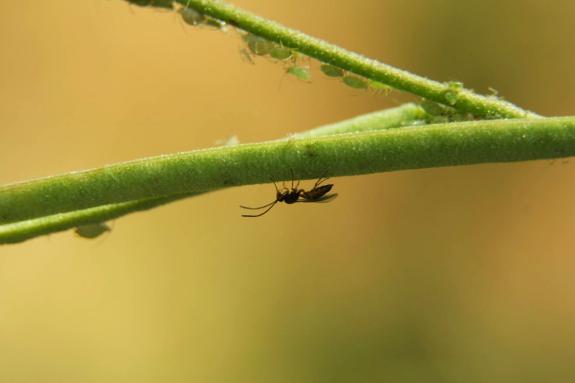As we study the natural interactions between plants and insects, we do not use insecticides in the greenhouse. Through the targeted use of beneficial insects, we can reduce pests and thus protect the environment and our wallet.
Due to the excessive use of pesticides in agriculture and commercial greenhouses, more and more resistant insect strains are being produced. Already 20 years ago, more than 500 insect species were known to be resistant to at least one insecticide, and 17 species were resistant to all major classes of insecticides. Many fungi and other plant pathogens also show resistance to chemical pesticides. By establishing a biological or integrated pest management system, the greenhouse team at the Max Planck Institute for Chemical Ecology has succeeded in implementing an active and preventive system of pest control instead of a reactive system of chemical treatment. By using antagonists, the natural enemies of the pests that eat or parasitize them, the pest infestation can be reduced to a tolerable level as a preventive measure.
The aim of integrated pest management and biological pest control is not necessarily to keep the greenhouse completely pest-free, but rather to keep the pests in check. By taking appropriate measures, the use of chemical agents can be minimized, which is absolutely necessary for conducting research experiments, as the investigation of plant-insect interactions is the focus of research.
Some of the pests that occur in our greenhouse facility and their successfully applied natural enemies will be presented.
Visitors of all ages can also take part in a quiz to find out more about important crops, many of which are essential to our diet.

